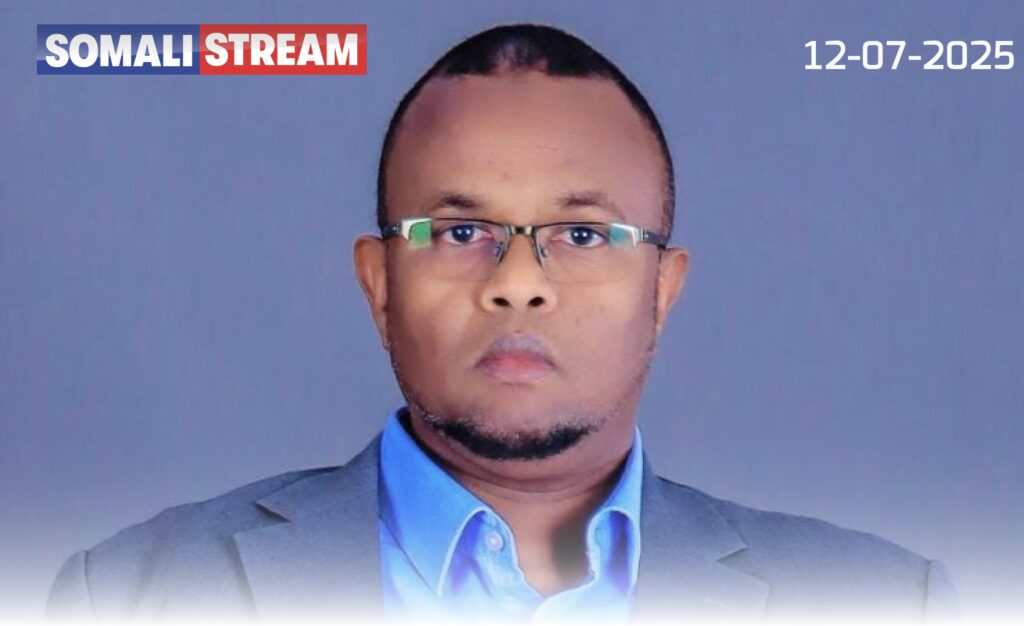By Dr. Liban Cigaal
On what may be the most perilous day yet for Somalia’s fragile federation, Villa Somalia the seat of the presidency is accelerating a dangerous course away from federalism, consensus, and national cohesion, and toward authoritarian consolidation and fragmentation.
When President Hassan Sheikh Mohamud returned to power in May 2022, early optimism quickly gave way to mounting concerns. Instead of ushering in a new era of inclusive governance and institutional reform, he resumed and amplified the legacy of his first term, which was marked by centralized control, marginalization of dissent, and divisive policy. Promises of “inclusive dialogue” and “shared authority” increasingly rang hollow.
Surrounding himself with cronies and staunch loyalists, the president appeared more focused on entrenching his own power than on building a functional federal state. Key decisions appointments, budgeting, and national policy were monopolized in Mogadishu. Parliament was sidelined.
Federal member states were pressured into alienation or isolation.
Puntland, once a pillar of federalism and democratic experimentation, has been systematically targeted. Despite leading in local elections and maintaining relative security, it now faces blocked revenue transfers and deliberate bureaucratic obstruction. Trust has evaporated, and Puntland’s ability to contribute to national security has been severely undermined especially today, as it is engaged in a fight against ISIS, in which it has achieved significant success without any support from the Federal Government. This marks a dark chapter in the history of President Hassan Sheikh and his administration.
Jubbaland, in the south, has suspended formal ties with the federal government, marking a total breakdown in cooperative security. Joint operations along the Juba River once critical in containing al-Shabaab have ceased. In their place are rising insurgent confidence and growing civilian disillusionment with both regional and federal authorities.
A turning point came in March 2024, with a series of rushed constitutional amendments. These changes dramatically expanded presidential powers, curtailed parliament’s authority, and were pushed through without public referendum or ratification by state assemblies. Legal experts and civil society leaders decried what they called a “constitutional coup.”
Federal Overreach Deepens Rift with Garowe and Escalates Tensions in Las Anod
Then came Las Anod. In June 2025, Mogadishu introduced unilateral administrative changes in the region, bypassing traditional elders and locally elected leaders. This move reversed months of painstaking, community-led reconciliation efforts and strained longstanding ties between Las Anod and Garowe, which are deeply connected through culture and economy. While Las Anod has since adopted a distinct administrative stance, nearby Sanaag and Garowe remain under Puntland’s authority. Rather than fostering stability, the federal intervention risks reigniting tensions in a region where governance must be rebuilt with caution and consent.
What makes the situation even more painful for many Somalis is the memory of Villa Somalia’s passive stance during the traumatic events in Las Anod two years ago. At a time when civilians were in urgent need, the federal government was widely perceived as having turned its back. Now, instead of contributing to reconciliation and rebuilding trust, it is seen as deepening divisions and fueling instability through continued political meddling.
Meanwhile, Somalia’s security outlook has deteriorated further. According to independent monitors, al-Shabaab attacks rose by 30% between April 2024 and April 2025. The much-delayed Black Lion II military operation has faltered, largely due to political discord between Mogadishu and the federal states. Each delay emboldens militant groups, while donor confidence falters and public trust in central leadership erodes.
Yet a path forward still exists.
Project funds must be disbursed directly to federal member states through transparent, jointly managed systems. Electoral institutions must be truly neutral, guided by constitutional principles—not the whims of the presidency. Disputed constitutional amendments require inclusive renegotiation with genuine input from regional assemblies. Most urgently, a revitalized joint security command must be restored so that no region is left alone to face insurgents.
President Mohamud now has fewer than 300 days left in his term. The weight of his legacy hangs heavy. He can choose the path of consensus, respect federalism, and rebuild relationships—or double down on consolidation and preside over Somalia’s political collapse.
The Somali federation is not yet broken beyond repair, but it is teetering on the edge of total disintegration if things continue on their current trajectory.
The views expressed in this article are those of the author and do not necessarily reflect the position of Somali Stream.


